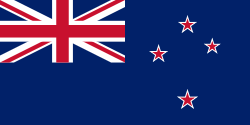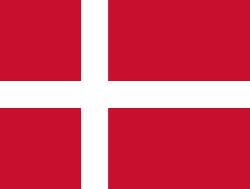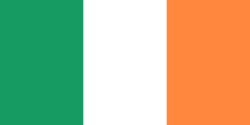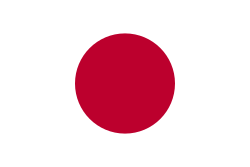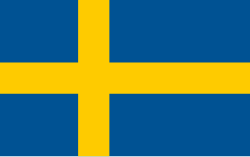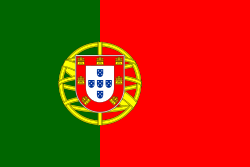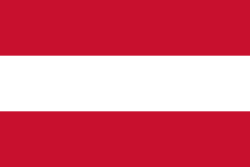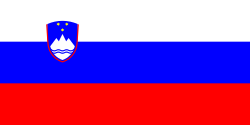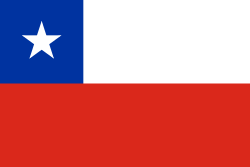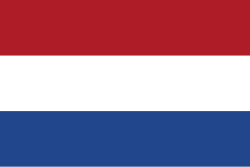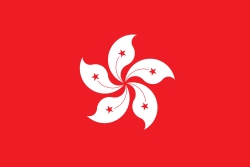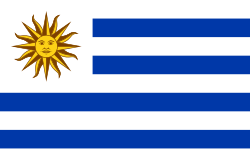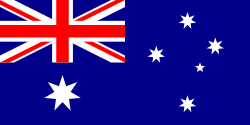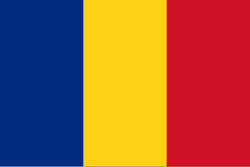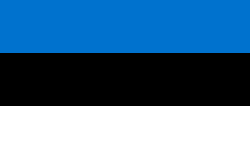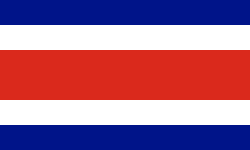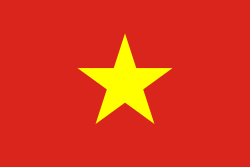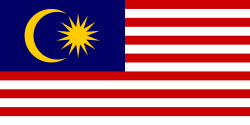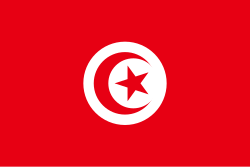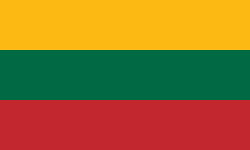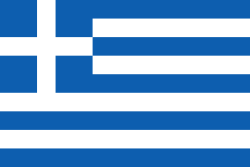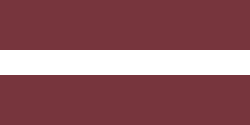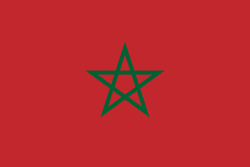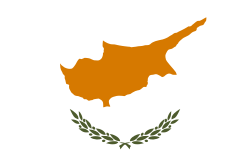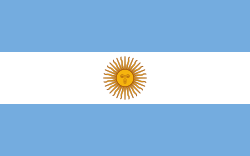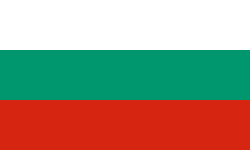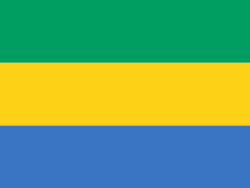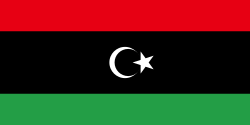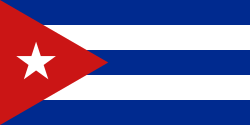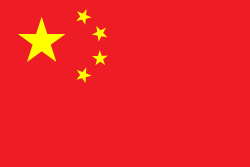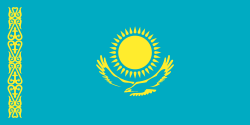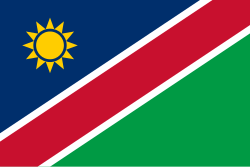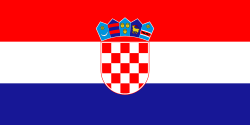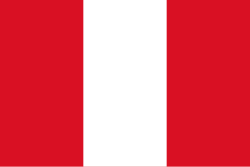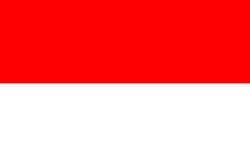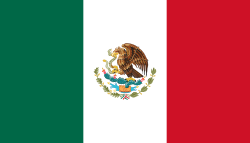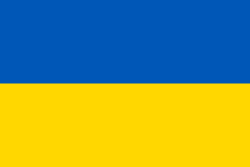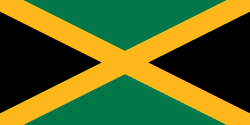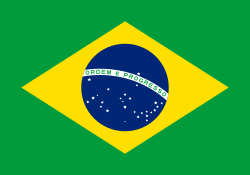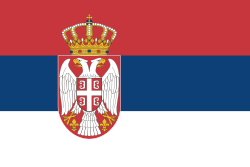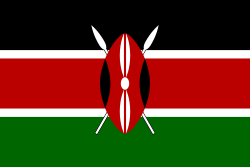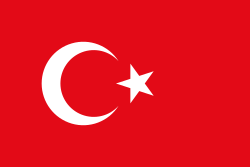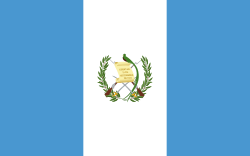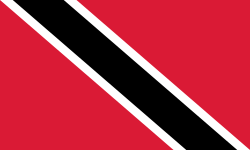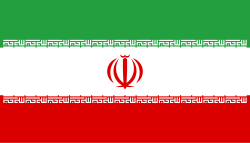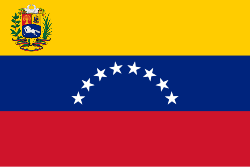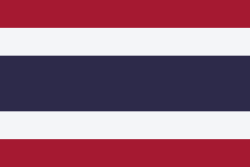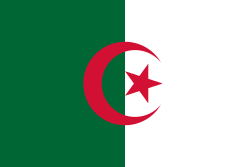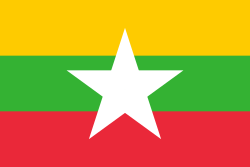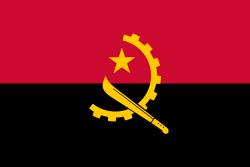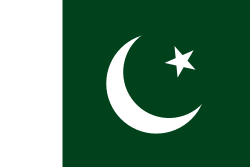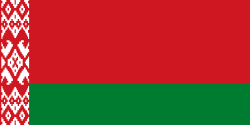Fredsindeks
Fredsindekset ((engelsk): Global Peace Index) er et forsøg på at måle fredeligheden i et land eller region. Indekset beregnes af The Economist, et internationalt panel af fredseksperter fra fredsinstitutter og tænketanke, sammen med Centre for Peace and Conflict Studies, University of Sydney, Australien. Listen blev etableret i maj 2007, og hævdes at være det første studie som rangerer lande over hele verden i henhold til deres fredelighed. Studiet er den australske iværksætter Steve Killeleas idé og er støttet af personer som Dalai Lama, ærkebiskop Desmond Tutu, og tidligere præsident Jimmy Carter. Faktorer undersøgt af forfatterne omfatter interne faktorer som vold og kriminalitet i landet, samt landenes eksterne relationer som militærudgifter og krige.
På listen for 2014 ligger Danmark på andenpladsen.[1]
Rangeringen på Global Peace Index for 2007
Jo fredeligere nationen er, jo højere ligger den på ranglisten.[2]
| Rangering | Land | Point |
|---|---|---|
| 1 | 1.357 | |
| 2 | 1.363 | |
| 3 | 1.377 | |
| 4 | 1.396 | |
| 5 | 1.413 | |
| 6 | 1.447 | |
| 7 | 1.478 | |
| 8 | 1.481 | |
| 9 | 1.481 | |
| 10 | 1.483 | |
| 11 | 1.498 | |
| 12 | 1.523 | |
| 13 | 1.524 | |
| 14 |  Schweiz Schweiz | 1.526 |
| 15 | 1.539 | |
| 16 | 1.568 | |
| 17 | 1.571 | |
| 18 | 1.575 | |
| 19 | 1.611 | |
| 20 | 1.620 | |
| 21 | 1.633 | |
| 22 | 1.641 | |
| 23 | 1.657 | |
| 24 | 1.661 | |
| 25 | 1.664 | |
| 26 | 1.682 | |
| 27 | 1.683 | |
| 28 | 1.684 | |
| 29 | 1.692 | |
| 30 | 1.702 | |
| 31 | 1.702 | |
| 32 | 1.719 | |
| 33 | 1.724 | |
| 34 | 1.729 | |
| 35 | 1.729 | |
| 36 | 1.731 | |
| 37 | 1.744 | |
| 38 | 1.747 | |
| 39 | 1.762 | |
| 40 | 1.765 | |
| 41 | 1.766 | |
| 42 | 1.786 | |
| 43 | 1.788 | |
| 44 | 1.791 | |
| 45 | 1.798 | |
| 46 | 1.818 | |
| 47 | 1.848 | |
| 48 | 1.893 | |
| 49 | 1.898 | |
| 50 | 1.909 | |
| 51 | 1.915 | |
| 52 | 1.923 | |
| 53 | 1.930 | |
| 54 | 1.936 | |
| 55 | 1.946 | |
| 56 | 1.952 | |
| 57 | 1.966 | |
| 58 | 1.967 | |
| 59 | 1.968 | |
| 60 | 1.980 | |
| 61 | 1.995 | |
| 62 | 1.995 | |
| 63 | 1.997 | |
| 64 | 2.003 | |
| 65 | 2.017 | |
| 66 | 2.020 | |
| 67 | 2.030 | |
| 68 | 2.038 | |
| 69 | 2.052 | |
| 70 | 2.056 | |
| 71 | 2.059 | |
| 72 | 2.059 | |
| 73 | 2.068 | |
| 74 | 2.071 | |
| 75 | 2.089 | |
| 76 | 2.093 | |
| 77 | 2.106 | |
| 78 | 2.111 | |
| 79 | 2.125 | |
| 80 | 2.150 | |
| 81 | 2.164 | |
| 82 | 2.170 | |
| 83 | 2.173 | |
| 84 | 2.181 | |
| 85 | 2.197 | |
| 86 | 2.219 | |
| 87 | 2.219 | |
| 88 | 2.223 | |
| 89 | 2.244 | |
| 90 | 2.246 | |
| 91 | 2.258 | |
| 92 | 2.272 | |
| 93 | 2.285 | |
| 94 | 2.286 | |
| 95 | 2.309 | |
| 96 | 2.317 | |
| 97 | 2.320 | |
| 98 | 2.390 | |
| 99 | 2.399 | |
| 100 | 2.428 | |
| 101 | 2.448 | |
| 102 | 2.453 | |
| 103 | 2.479 | |
| 104 | 2.489 | |
| 105 | 2.491 | |
| 106 | 2.495 | |
| 107 | 2.503 | |
| 108 | 2.524 | |
| 109 | 2.530 | |
| 110 | 2.542 | |
| 111 | 2.575 | |
| 112 | 2.587 | |
| 113 | Elfenbenskysten | 2.638 |
| 114 | 2.662 | |
| 115 | 2.697 | |
| 116 | 2.770 | |
| 117 | 2.898 | |
| 118 | 2.903 | |
| 119 | 3.033 | |
| 120 | 3.182 | |
| 121 | 3.437 | |
| ukendt | ukendt | |
| ukendt | ukendt | |
| ukendt | ukendt | |
| ukendt | ukendt |
Referencer
- ^ "2014 GPI Findings". Arkiveret fra originalen 29. juni 2010. Hentet 19. april 2014.
- ^ All information in the index table from "Rankings". Global Peace Index. Vision of Humanity. Arkiveret fra originalen 16. april 2008. Hentet 2007-08-09.
Eksterne links
Medier brugt på denne side
Finlands flag
Flag of Canada introduced in 1965, using Pantone colors. This design replaced the Canadian Red Ensign design.
Flag of Portugal, created by Columbano Bordalo Pinheiro (1857–1929), officially adopted by Portuguese government in June 30th 1911 (in use since about November 1910). Color shades matching the RGB values officially reccomended here. (PMS values should be used for direct ink or textile; CMYK for 4-color offset printing on paper; this is an image for screen display, RGB should be used.)
Flag of Austria with the red in the Austrian national colours which was official ordered within the Austrian Armed Forces (Bundesheer) in the characteristic “Pantone 032 C” (since May 2018 the Red is ordered in the characteristic “Pantone 186 C”.)
The flag of Slovenia.
- "The construction sheet for the coat of arms and flag of the Republic of Slovenia
- is issued in the Official Gazette Uradni list Republike Slovenije #67, 27 October 1994
- as the addendum to the Law on the coat of arms and flag."
Det er let at give dette billede en kant
Flag of Namibia
Flag of Senegal
Det er let at give dette billede en kant
The flag of the Dominican Republic has a centered white cross that extends to the edges. This emblem is similar to the flag design and shows a bible, a cross of gold and 6 Dominican flags. There are branches of olive and palm around the shield and above on the ribbon is the motto "Dios,Patria!, Libertad" ("God, Country, Freedom") and to amiable freedom. The blue is said to stand for liberty, red for the fire and blood of the independence struggle and the white cross symbolized that God has not forgotten his people. "Republica Dominicana". The Dominican flag was designed by Juan Pablo Duarte, father of the national Independence of Dominican Republic. The first dominican flag was sewn by a young lady named Concepción Bona, who lived across the street of El Baluarte, monument where the patriots gathered to fight for the independence, the night of February 27th, 1844. Concepción Bona was helped by her first cousin María de Jesús Pina.
Det er let at give dette billede en kant
bendera Indonesia
Flag of Jamaica. “The sunshine, the land is green, and the people are strong and bold” is the symbolism of the colours of the flag. GOLD represents the natural wealth and beauty of sunlight; GREEN represents hope and agricultural resources; BLACK represents the strength and creativity of the people. The original symbolism, however, was "Hardships there are, but the land is green, and the sun shineth", where BLACK represented the hardships being faced.
Flag of Papua New Guinea
Colours: Pantone 186 C for red and 116 C for yellow
Trinidad og Tobagos flag
Flag of Iran. The tricolor flag was introduced in 1906, but after the Islamic Revolution of 1979 the Arabic words 'Allahu akbar' ('God is great'), written in the Kufic script of the Qur'an and repeated 22 times, were added to the red and green strips where they border the white central strip and in the middle is the emblem of Iran (which is a stylized Persian alphabet of the Arabic word Allah ("God")).
The official ISIRI standard (translation at FotW) gives two slightly different methods of construction for the flag: a compass-and-straightedge construction used for File:Flag of Iran (official).svg, and a "simplified" construction sheet with rational numbers used for this file.
Used color: National flag | South African Government and Pantone Color Picker
| grøn | rendered as RGB 0 119 73 | Pantone 3415 C |
| gul | rendered as RGB 255 184 28 | Pantone 1235 C |
| rød | rendered as RGB 224 60 49 | Pantone 179 C |
| blå | rendered as RGB 0 20 137 | Pantone Reflex Blue C |
| hvid | rendered as RGB 255 255 255 | |
| sort | rendered as RGB 0 0 0 |
Flag of Ethiopia
The national flag of Kingdom of Thailand; there are total of 3 colours:
- Red represents the blood spilt to protect Thailand’s independence and often more simply described as representing the nation.
- White represents the religion of Buddhism, the predominant religion of the nation
- Blue represents the monarchy of the nation, which is recognised as the centre of Thai hearts.
Flag of the Ivory Coast, written by Jon Harald Søby, modified by Zscout370. The colors match to what is reported at http://fotw.vexillum.com/flags/ci.html.
Flag of the Ivory Coast, written by Jon Harald Søby, modified by Zscout370. The colors match to what is reported at http://fotw.vexillum.com/flags/ci.html.
This is the national flag of Belgium, according to the Official Guide to Belgian Protocol. It has a 13:15 aspect ratio, though it is rarely seen in this ratio.
Its colours are defined as Pantone black, Pantone yellow 115, and Pantone red 032; also given as CMYK 0,0,0,100; 0,8.5,79,0; and 0,94,87,0.Forfatter/Opretter: Kelzad, Licens: CC BY 2.5
Representation of w:en:Global Peace Index in the world. The scale means: 1 = most peaceful, 5 = least peaceful. 'Peacefulness' is understood as 'absence of violence' [1].
The national flag of the Democratic Republic of the Congo. Created according to the 2006 constitution : Son emblème est le drapeau bleu ciel, orné d’une étoile jaune dans le coin supérieur gauche et traversé en biais d’une bande rouge finement encadrée de jaune. (Its symbol is a sky blue flag, decorated with a yellow star in the upper left corner and crossed in the diagonal by a red strip with thin yellow borders) It seems to be identical, except for a lighter field hue, to the 1966–1971 flag.
Forfatter/Opretter: Ukendt, Licens: CC BY-SA 3.0
|
Very high High Medium Low Very low not included
|
This is the Proposed flag of Taiwan favoured by some supporters and activists of the Taiwan Independence Movement. However, there is no consensus opinion that this flag should be the official representation of Taiwan, in the event that Taiwan should officially declare its independence in the future.
Currently, since Taiwan is a de facto independent state under the official name Republic of China (ROC), the official flag of Republic of China is still commonly used by the majority of Taiwanese people. The Taiwan government as of 2006, even though ruled by the pro-independence Democratic Progressive Party, was still using the official ROC flag (which can be seen at Image:Flag of the Republic of China.svg).
This proposed flag should be used with caution, and only when it is intentional and specific to indicate something related to the Taiwan Independence Movement. For other routinely common usage to represent Taiwan at the present time, use the official flag of Republic of China.| Flag of Bolivia* | |
|---|---|
| country | Template:I18n/Republic of Bolivia |
| anvendes af | Bolivia |
| fra | 1851 |
| til | Present |
| oprettet af | Government of Bolivia |
| format | 15:22 |
| form | rectangular |
| farver | rød, gul, grøn
flag has 3 horizontal stripes |
| other characteristics | A horizontal tricolor of red, yellow and green. |



